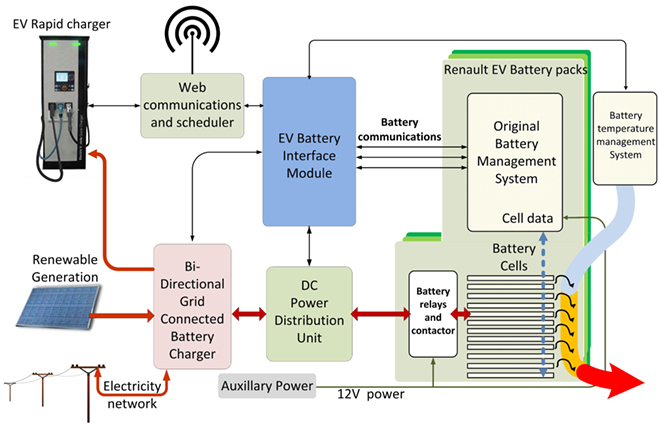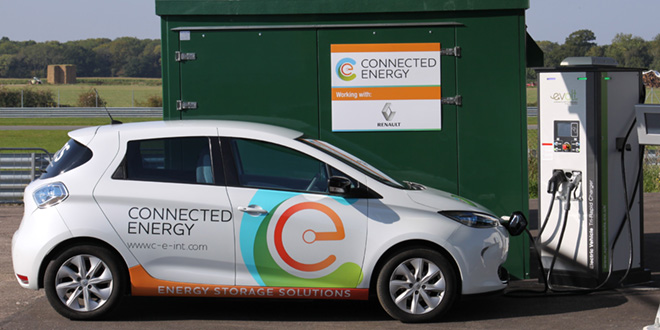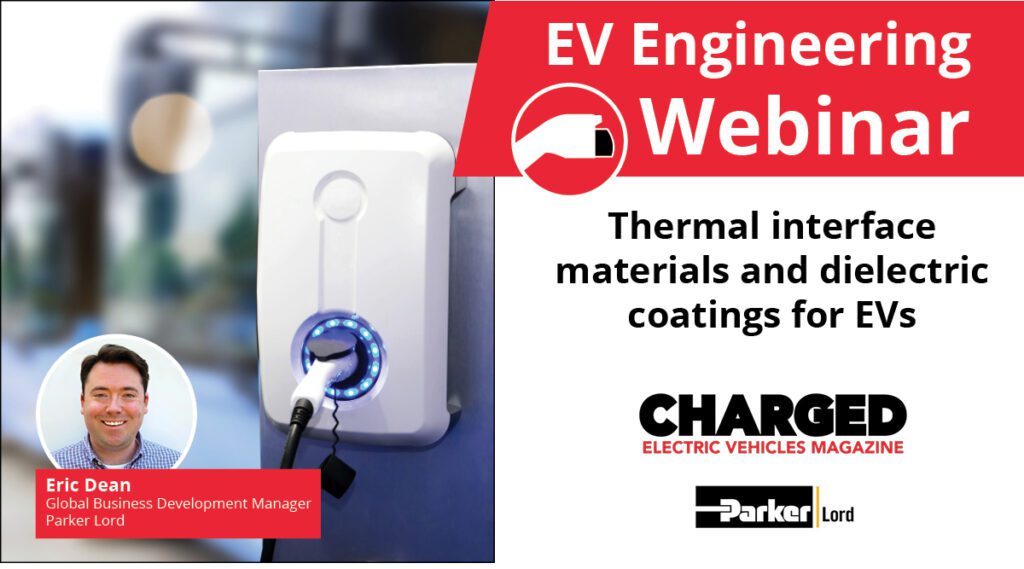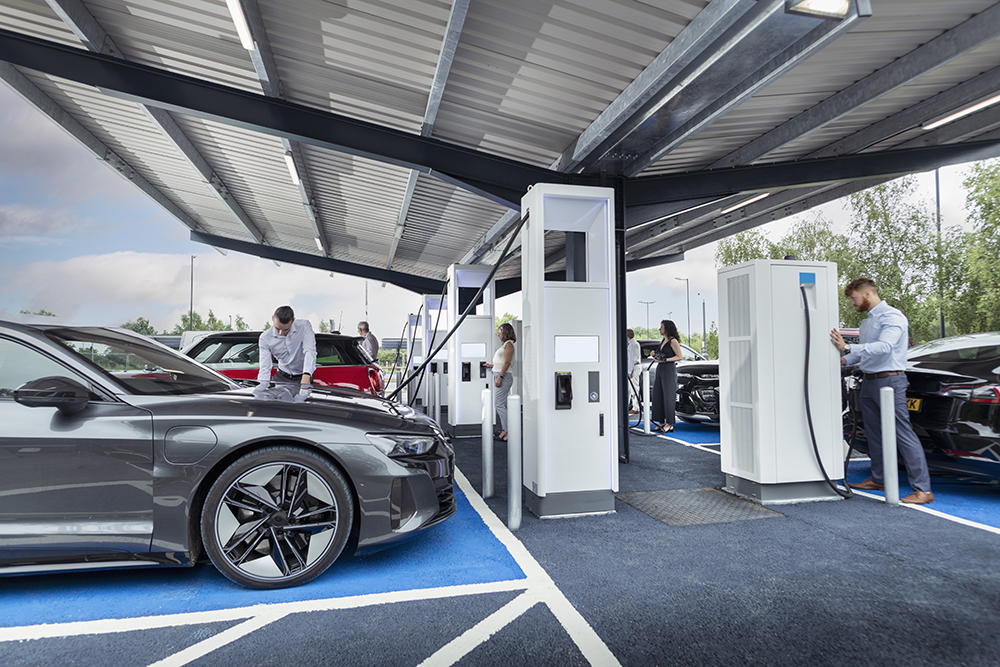Every week brings another example of how EVs will fit in as an integral part of the distributed, smart energy system of the future. The latest news comes from Renault. Europe’s leading EV-seller has partnered with energy storage company Connected Energy to develop a modular storage product called E-STOR.
E-STOR uses second-life EV batteries to store electricity for a variety of purposes. Applications include: storing energy generated from intermittent renewable resources; charging at off-peak times, enabling users to reduce energy costs; and enabling rapid EV charging without overloading the local electricity supply.
E-STOR will be available in the UK starting in July. The first E-STOR product is nominally rated at 50 kW/50 kWh, which could typically be used to support one rapid charger, but the system is fully scalable, and higher capacity units are to follow.

“E-STOR will enable the more cost-effective roll-out of electric vehicles in commercial and industrial settings, thus increasing the overall sustainability of this clean form of transport,” said Matthew Lumsden, Managing Director, Connected Energy. “With Renault we have secured the supply of second life batteries for future E-STOR installations.”
“Through E-STOR, EV owners can charge their car at reduced costs with electricity that is less carbon-dependent,” said Eric Feunteun, Electric Vehicle Program Director, Renault. “With this energy management technology, EVs and their batteries become an asset for the grid rather than creating overload.”
Source: Renault via Green Car Congress










































































































